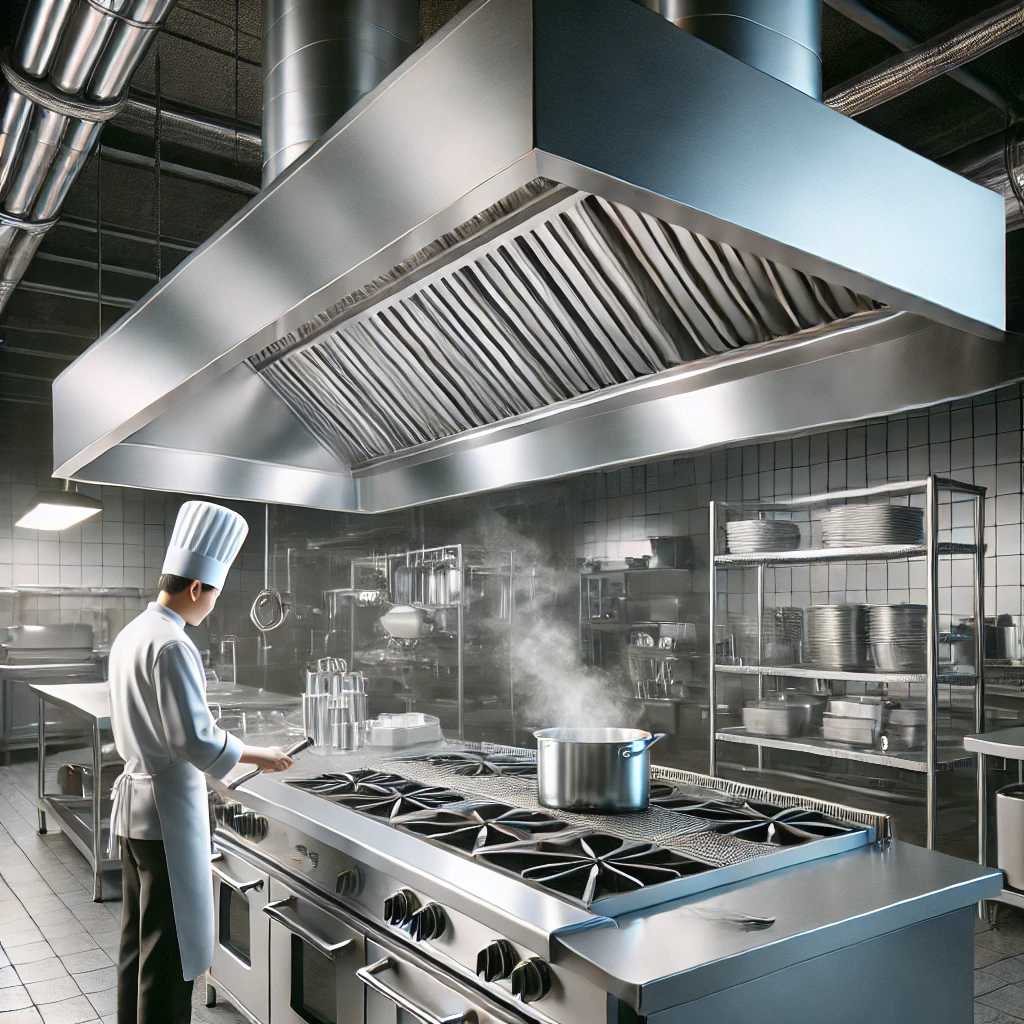A reliable commercial kitchen hood ventilation system is essential for maintaining a safe, efficient, and compliant cooking environment. Here’s an in-depth look at why such a system is crucial for any commercial kitchen:
1. Ensures Safety
- Fire Hazard Mitigation: Grease and smoke can accumulate in the kitchen, increasing the risk of fire. A reliable ventilation system removes these flammable particles.
- Carbon Monoxide Control: Combustion appliances release harmful gases like carbon monoxide. Proper ventilation ensures these gases are safely expelled.
- Air Quality: Reduces exposure to harmful airborne contaminants, protecting kitchen staff from respiratory issues.
2. Enhances Employee Comfort
- Temperature Regulation: Cooking generates heat, and poor ventilation can make the kitchen unbearably hot. A robust system maintains a comfortable working temperature.
- Odor Control: Prevents strong cooking odors from lingering, creating a more pleasant environment for employees and nearby patrons.
3. Compliance with Health and Safety Regulations
- Meets Legal Requirements: Most jurisdictions mandate the use of effective ventilation systems in commercial kitchens. Non-compliance can lead to hefty fines or closure.
- Inspection Readiness: A well-maintained ventilation system ensures smooth health inspections and operational continuity.
4. Protects Kitchen Equipment
- Reduces Grease Build-Up: Proper ventilation minimizes grease accumulation on kitchen surfaces and equipment, prolonging their lifespan.
- Prevents Corrosion: Removes steam and moisture that can lead to rust and corrosion on metal surfaces and machinery.
5. Energy Efficiency
- Optimized Airflow: A reliable system operates efficiently, reducing energy costs associated with maintaining air quality and temperature control.
- Integrated Systems: Modern ventilation systems can be paired with HVAC units to streamline energy use across the kitchen.
6. Improves Customer Experience
- Prevents Odor Leakage: Strong food odors can permeate dining areas without proper ventilation, negatively impacting customer experience.
- Supports Food Quality: By regulating air conditions, it prevents contaminants from affecting food preparation.
7. Sustainability and Environmental Responsibility
- Pollution Control: Advanced ventilation systems filter out pollutants, reducing the environmental impact of kitchen operations.
- Green Certification: Using energy-efficient ventilation systems can help achieve green certifications, attracting eco-conscious customers.
Conclusion
Investing in a reliable commercial kitchen hood ventilation system is not just a regulatory necessity but also a cornerstone for operational efficiency, employee well-being, and customer satisfaction. By ensuring safety, maintaining compliance, and supporting energy efficiency, a well-functioning system safeguards your business while enhancing overall kitchen performance.

